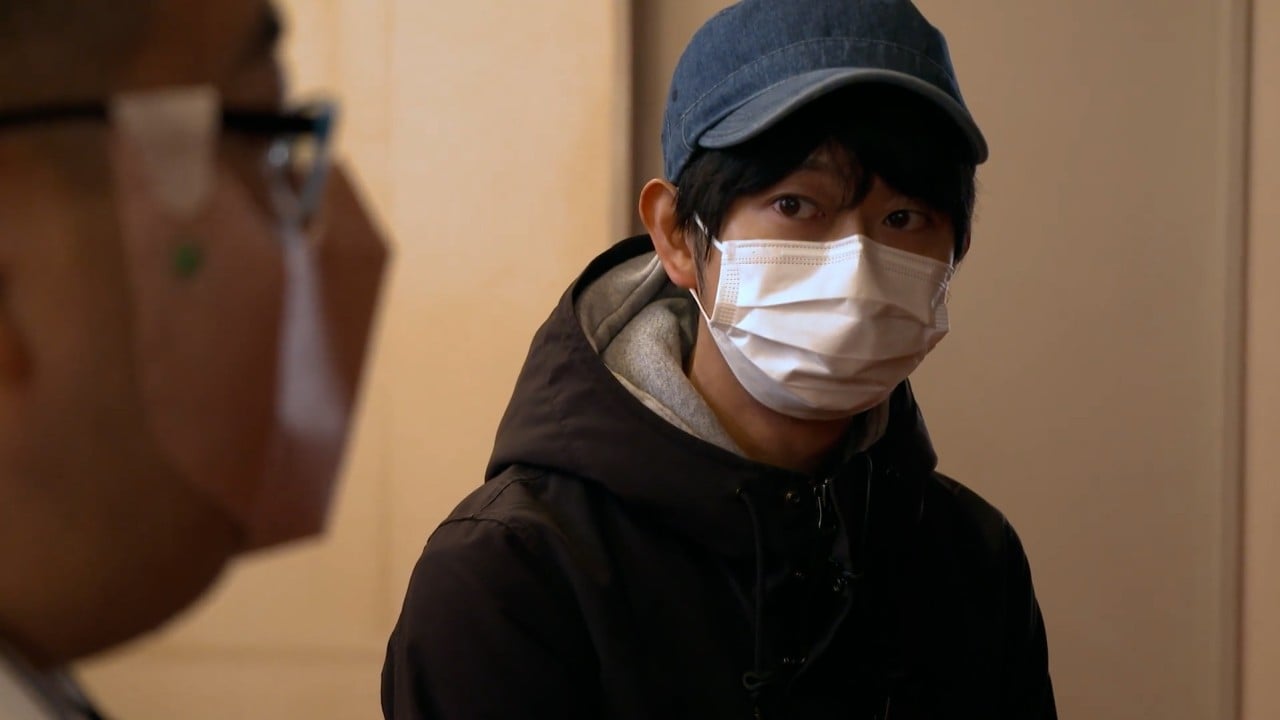
This Weird Year in Asia: monkey sex, toilet water beer, a ‘bachelor’s handbag’
- What do monkey sex, flavoured condoms, and a ‘bachelor’s handbag’ have in common? All made our list for strangest Asia stories of 2022
- If those stories whet your appetite, we also have a tale about ‘toilet water’ beer that will quench your thirst for oddball stories from the past 12 months
We will start at nothing, or one Japanese man’s mission to accomplish nothing.
Doing nothing
The 38-year-old Tokyo resident charges 10,000 yen (US$71) an hour to accompany clients and simply be a companion.
“Basically, I rent myself out. My job is to be wherever my clients want me to be and to do nothing in particular,” Morimoto said, adding that he handled some 4,000 sessions the past four years.
His job has taken him to a park with a person who wanted to play on a see-saw. He has also beamed and waved through a train window at a complete stranger who wanted a send-off, and has sometimes just sat and listened.
‘I rent myself out’: meet the Japanese man who gets paid ‘to do nothing’
Before Morimoto found his true calling, he worked at a publishing company and was often chided for “doing nothing”.
“I started wondering what would happen if I provided my ability to ‘do nothing’ as a service to clients,” he said.
“People tend to think that my ‘doing nothing’ is valuable because it is useful [for others] … But it’s fine to really not do anything. People do not have to be useful in any specific way,” he said. “I don’t do anything except eating and drinking. And I give a very simple reply when I’m asked anything.”

Food for thought
Australia fines traveller from Indonesia US$1,900 for undeclared McMuffins
But that wasn’t the only food smuggling case in Australia this year.
Officers at Perth airport also detected 3.1kg of duck meat, more than 500g of frozen beef and about 900g of chicken in his bags.
Indonesian man deported for smuggling beef rendang into Australia
He selected “no” on his pre-arrival passenger card that asked if he was bringing any meat, poultry, fish, seafood, eggs or vegetables into Australia.
Border officials cancelled his visa and repatriated him. They added the traveller, who was also fined A$2,664 (US$1,711), planned to sell the meat to members of the local community.

Bottoms up
“NEWBrew” is no ordinary beer. The blond ale is made with recycled sewage.
The drink is a collaboration between the country’s national water agency, PUB, and local craft brewery Brewerkz.
“I seriously couldn’t tell this was made of toilet water,” said Chew Wei Lian, 58, who bought the beer from a supermarket after hearing about it. “I mean, it tastes just like beer, and I like beer.”
The idea of processing sewage into drinking water, once largely resisted, has been gaining support the past decade as the world’s supply of fresh water is increasingly under stress. International conservation organisation, WWF, estimates 2.7 billion people find water scarce for at least one month a year.
Singapore’s NEWBrew made from recycled toilet water ‘tastes just like beer’
In bad taste
A rural South Korean town got into hot water over its garlic advert that some farmers say stinks of obscenity and even sexually objectified the vegetable.
The video, which had been on the site for about two years, shows a woman flirting with a man named “Hongsan” with a full garlic head mask. The scene is a parody of a famous scene from 2004 hit Korean film Once Upon a Time in High School.
Raunchy South Korean advert under fire for ‘sexually objectifying’ garlic
The spicy ad, which reportedly generated about 190,000 views had been largely kept underground, but began to take root in the larger public consciousness when it was aired on electronic billboards at a Seoul express bus terminal and a street in the city of Daejeon in July ahead of the garlic’s release.
One farmer who saw the video notified farmers’ groups, while South Korean media also began reporting on it, leaving a bad taste in people’s mouths.
After a backlash, Hongseong officials removed the video and stopped airing it on billboards.
Plastered by prophylactics
When the condoms are soaked in hot water they apparently release polyurethane, resulting in a cocktail that can give off a high lasting many hours.
“Earlier, three to four packets of condoms were sold daily. And now packs of condoms are disappearing from a store,” said a shop employee.
Youth in India have found a new way to get high; flavoured condoms
Experts said consuming intoxicating flavoured-condom water has consequences.
“Drinking this water can cause intoxication and addiction. If consumed repeatedly, it will negatively impact the lungs and kidneys, as well as harm the body’s nervous system,” said Joydeep Ghosh, an internal medicine expert at Fortis Hospital in Kolkata.
Monkey business
Animals do not use protection during intercourse, but some apparently use sex toys.
While studying a population of 173 long-tailed macaques in Indonesia, researchers observed the monkeys tapping and rubbing stones on their genitals and groin area, according to a paper published in the journal Ethology. The behaviour led the researchers to the “Sex Toy” hypothesis.
Researchers observed that young males were more likely than older ones to partake in the behaviour, and their actions were often followed by sexual responses, such as an erection. They also found interactions with the stone were associated with other sexual behaviours, like mounting.
Researchers said data partly supported the theory the behaviour was “sexually motivated.” Meaning the monkeys seemed to be performing “a form of self-directed, tool-assisted masturbation”, Camilla Cenni, a PhD student at the University of Lethbridge in Canada and author of the study, told The New York Times.
Monkeys in Indonesia use stones as sex toys, study suggests
Australian slang
Australians have their own vernacular – luckily they have provided a list for those of us who do not live Down Under.
The Australian-English dictionary defined the term as a “noun: colloquial (humorous) a takeaway roast chicken”.
It explained its origin as: “From the fact that such a chicken requires no further preparation before consumption, so is seen as an easy meal favoured by a single person, and is often packaged in a small plastic bag with a handle, resembling a handbag.”
Australia just added ‘bachelor’s handbag’ to the dictionary. Know what it means?
Other gems added to the dictionary this year include a “spicy cough” for a Covid infection, and a “gigafire” for a bushfire that scorches more than 100,000 hectares.
The dictionary committee’s formal choice for word of the year was “teal”.
Not just a colour, teal also defines a new crop of independent politicians combining environmental green and conservative blue policies who gained prominence in May general elections.
A South Korean F-bomb
Yoon’s foul-mouthed criticism of US goes viral in South Korea
Yoon’s comments appeared to refer to Biden’s drive to increase US funding to the Global Fund, which would require congressional approval.
Yoon’s office denied the report, insisting he was not talking about US Congress or Biden.

Misshapen mascot
We need a symbol for 2022’s oddball stories – and luckily Japan has us covered.
In May it unveiled its mascot for the 2025 Osaka World Expo, and its choice left many scratching their heads. The creature, eventually named Myaku-Myaku (coming from the word myakumyaku, whereby something is passed down continuously) is a blue figure topped with a circle of red, interconnected bubbles containing five eyes looking in different directions.
Its blue body represents the waters around Osaka, organisers said. No explanation was given for why it has five eyes.
Oozie the Doozie? Creepy-kun? Japan jeers at ‘monstrous’ World Expo mascot
Before naming it, organisers asked the public for suggestions, and entries on the expo’s Twitter page included “Curse of the Abyss” and “The End”.
And with that we have reached the end, of this column, and the year.
Those were just a handful of the stories that made us smile, cringe, and scratch our heads on the SCMP Asia Desk in 2022.

